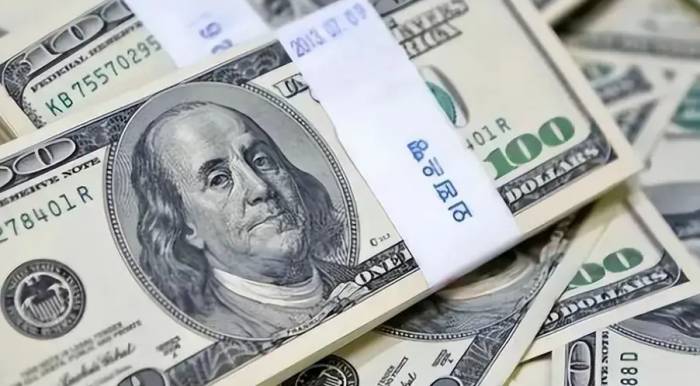US Considering Interest Rate Cut?
Undoubtedly, the most influential entity in 2022 was the Federal Reserve, and it appears that in 2023, the Federal Reserve will continue to have a significant impact on the global financial markets.
The actions the Federal Reserve may take in the future are difficult to predict, but this time, it is no longer other countries that will foot the bill; the United States itself may ultimately bear the consequences.
01
Last year, the Federal Reserve's continuous interest rate hikes led to the dollar's largest appreciation in 20 years. The outbreak of the Russia-Ukraine conflict also benefited the dollar. In 2022, the dollar rose by 8.19%, a level of increase not seen since 2015, once again topping the charts.
Surprisingly, the currency that could stand toe-to-toe with the dollar was Russia's ruble.
Many may wonder, after the outbreak of the Russia-Ukraine conflict, didn't the ruble's exchange rate against the dollar plummet? How could it end the year with a 6.8% increase?
Indeed, immediately following the conflict, due to risk aversion, there was a massive sell-off of rubles and a rush to buy dollars, causing the ruble to depreciate to over 150 in a short period.
However, because Russia advanced the process of de-dollarization, linking natural gas trade settlements to the ruble, and exported a large amount of natural gas, the ruble's exchange rate naturally increased. The exchange rate even quickly rose to pre-conflict levels, reaching a peak of 60 at times.
Advertisement
In fact, this scenario was common among many resource-exporting countries in 2022. Although the dollar's interest rate hikes led to depreciation in most non-US currencies, for countries with substantial resource exports, the exports created a trade surplus, supporting their local currencies' exchange rates. Therefore, there was no significant depreciation last year, and many currencies even appreciated.In terms of exchange rates, what is quite surprising is the Turkish lira.
Despite a 44% plunge in the previous year, Turkey did not follow the Federal Reserve's aggressive interest rate hikes last year and instead continued to lower its benchmark interest rate, resulting in a 28% annual decline.
When facing inflation, other countries would opt for interest rate hikes, but Turkey chose to lower interest rates; when facing the depreciation of their own currency, other countries would opt for interest rate hikes, but Turkey still chose to lower interest rates.
Entering 2023, it is highly likely that the Federal Reserve will stop raising interest rates and may even start lowering them; we will have to see if modern Turkey will make any astonishing moves.
Despite the strong rise of the US dollar, the increase in commodity prices affected by the Russia-Ukraine conflict is still at the forefront, with LME nickel futures surging by more than 44% this year, far ahead of the second-ranked RBOB gasoline.
Round after round of sanctions from Western countries did not crush commodities; instead, they triggered a surge in crude oil, agricultural products, and industrial metals.
However, since the second half of last year, commodities have experienced a certain degree of decline, and whether this wave of decline will continue into this year will depend on the recovery of global demand.
03
Nevertheless, most global stock markets have fallen, primarily paying the price for US interest rate hikes.
Among the major markets, only the UK's FTSE 100 Index has seen a slight increase. Although a 0.91% increase may sound insignificant, it has carved a path through the sea of falling indices.The S&P 500 and the Nasdaq both recorded their largest annual declines since 2008, with the Nasdaq index falling by more than a third.
When can the Federal Reserve finally end its rate hikes?
Continuous rate hikes lead to higher borrowing costs and ongoing economic uncertainty in the United States, which is very detrimental to the stock market's recovery.
For an entire year, the energy crisis has not been resolved, causing investors to shy away from the stock market and hesitate to make moves.
These are significant influencing factors.
However, it is anticipated that the Federal Reserve will pivot its monetary policy this year, with increasingly evident signs of recession, compelling the U.S. to consider lowering interest rates. This would be good news for global stock markets, but U.S. stocks might be an exception.

Because once the Federal Reserve stops raising rates or enters a rate-cutting cycle, the U.S. Dollar Index will plummet significantly, and capital will withdraw from the U.S. market, implying that U.S. stocks will face considerable selling pressure.
Leave a Comment